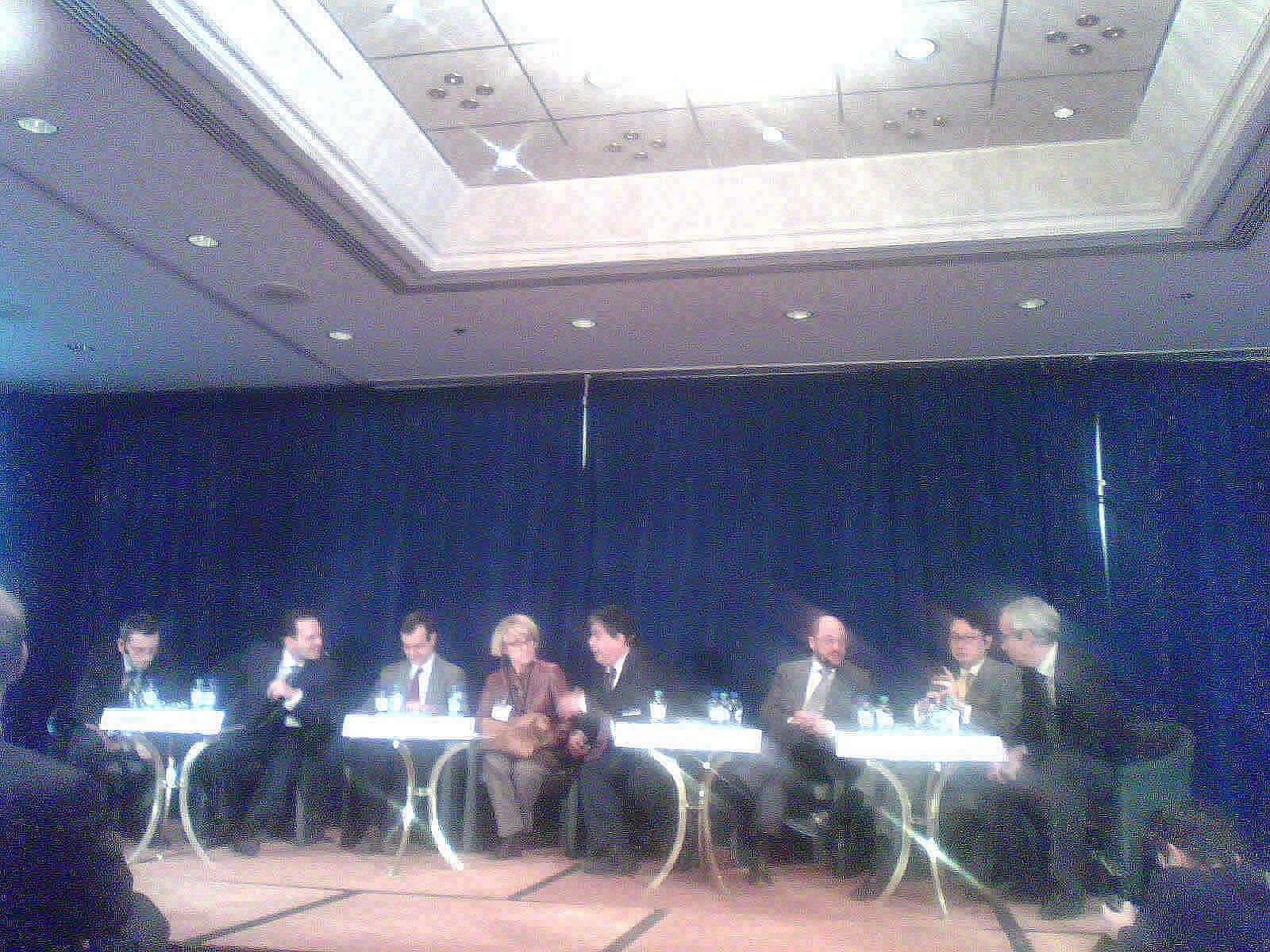Jeppe Tranholm-Mikkelsen, Permanent Representative of Denmark to the European Union, Danuta Hübner, Member of European Parliament, Martin Schulz, President of the European Parliament, Andreas Mavroyiannis, Cypriot Deputy Minister for European Affairs and Arif Havas Oegroseno, Ambassador of Indonesia to Belgium, Luxembourg and the European Union were amoung the speakers who discussed on 'Setting the Political Priorities', 'Getting the EU Back on Track', 'The Post-Crisis EU: Phoenix from the Ashes?' and 'Bringing in the External Perspective: What Europe Do We Need on the Global Stage?'
Pierre Defraigne (Executive Director Madariaga – College of Europe Foundation),
Janis Emmanouilidis (Head of Programme and Senior Policy Analyst, European Policy Centre (EPC),
Philippe Herzog (President Confrontations Europe),
Giles Merritt (Secretary General, Friends of Europe/Les amis de l’Europe) and
Dominique Moïsi (Special Advisor, Institut français des relations internationales (IFRI) contributed to the public debate on 'Setting the Political Priorities'.
The debates amongst scientific and political experts from all over Europe, including distinguished speakers like Martin Schulz, recently elected President of the European Parliament, Danuta Hübner, Chair of the EP’s cohesion policy committee, and MEP Dimitrios Droutsas, former foreign minister of Greece, started with two perspectives on the austerity-solidarity equation currently predominating the public debate:
-
indiscriminate budget consolidation efforts are accused to exarcerbate economic recession and social hardships particularly in those EU countries most affected by the sovereign debt crisis;
- austerity policies may be considered as necessary precondition for structural reforms enhancing competitiveness, growth and employment in member states lagging behind.
"You might create a few jobs with a public works programme, but with the euro crisis forget it, there's not going to be any money. The EU's economic strategy amounted to "fine-tuning". There's a strong smell of business as usual. It was also argued that insofar as the economic crisis was caused by a lack of liquidity – the inability of banks and governments to secure loans – the main institution capable of action was the European Central Bank. All this gesticulation at the Council level is becoming less and less relevant".
Most of the around 400 participants shared the second perspective that there is no automatic trade-off between austerity and solidarity – and that restoring sustainable public finances can and should be reconciled with a stronger focus on growth and jobs.
Moreover, there was broad consensus that the issue of European solidarity should not be narrowed down to the current crisis-related debate. Keeping in mind that European integration is not just about economics but a political project, the principle of solidarity should also address issues like intergenerational justice in a resource-efficent EU, European migration policy or Europe’s role in the world. |


